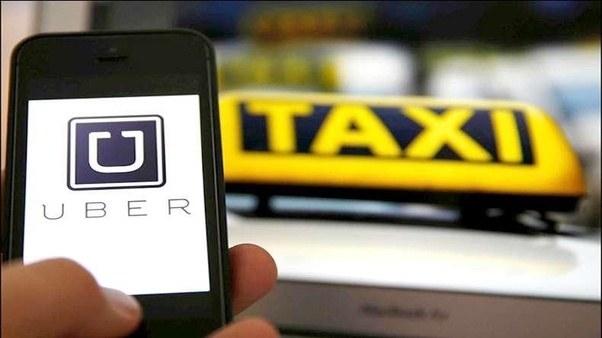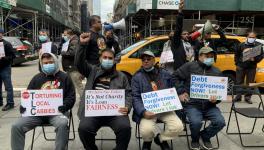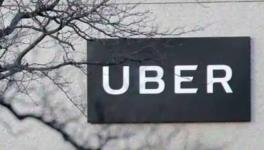The Uber “Problem”

Image Courtesy: Quora
Most of urban, upper middle-class India today cannot imagine life without Uber (or Ola, the Indian counterpart and local competition of the American app-based ride-hailing service).
But the convenience that Uber offers customers worldwide, who simply tap on their smartphones to book a ride at any hour anywhere in the city, comes at the cost of legality.
Recently, the Harvard Business Review (HBR), arguably the world’s most influential business journal, pointed out that Uber—and most other app-based aggregators like it—operate on a business model that is fundamentally “illegal”.
In fact, author Benjamin Edelman, who is an associate professor at the Harvard Business Review, called for regulators to shut down Uber — the world’s highest valued venture-backed private tech company at nearly $70 billion, operating in more than 70 countries.
Now, anyone keeping up would know that Uber has been in the news for all the wrong reasons lately.
On June 20, founder Travis Kalanick—blamed by many for fostering a toxic workplace culture even as he pushed the company to the top—stepped down as CEO after investors demanded so.
This came after months of Uber courting bad press — from gender discrimination and sexual harassment at the workplace, an intellectual property theft lawsuit by Google over self-driving car technology, to a criminal probe over use of a software called Greyball to deceive authorities, and even an embarrassing video of Kalanick arguing with a cab driver over falling fares.
Then there are the worldwide violations of the rights of workers—the drivers, but that is something Edelman does not touch upon in the HBR article, and has to do with the way all companies that are part of the so-called “sharing economy” position themselves.
But first, let us consider the case that HBR makes, that a change in leadership won’t redeem the company, because “Uber’s business model is predicated on lawbreaking”.
“And having grown through intentional illegality, Uber can’t easily pivot toward following the rules,” writes Edelman.
So, how is Uber illegal? It is simple.
In most of the world, Uber provides rides using regular, non-commercial vehicles that are owned by the drivers themselves—anyone owning a car and a driving license can sign up as a “driver-partner” with Uber (or Ola or any such company).
By using non-commercial vehicles, Uber avoided the costs involved in “commercial insurance, commercial registration, commercial plates, special driver’s licenses, background checks, rigorous commercial vehicle inspections, and countless other expenses.”
Even though these or more formalities and checks are required by the laws of the various lands the company operates on.
“Uber’s biggest advantage over incumbents was in using ordinary vehicles with no special licensing or other formalities”.
This resulted in savings for Uber, gave it a “huge cost advantage over taxis and traditional car services”, and also “brought lower prices to consumers”.
“But this use of noncommercial cars was unlawful from the start.”
It’s important to note here that this is not the case in India—one of Uber’s largest markets, where it operates in at least 29 cities.
In India, Uber and Ola cabs operate with the required commercial registration, commercial drivers’ licences, and other checks and permits.
They were forced to, especially after a December 2014 case of a woman passenger in Delhi being raped by her Uber driver. There have been cases of sexual assault by drivers in other countries, including the US, as well.
Uber has also got into trouble for illegality in other countries, including France. In China, Uber was forced to sell its operation to local rival Didi Chuxing.
But Uber has been spending massive amounts of money, particularly in the US, in employing lawyers and mobilising customers to lobby regulators and legislators in order to get the rules changed to fit their business needs—all in the name of “innovation”.
“Despite flouting straightforward, widely applicable law in most jurisdictions, Uber usually managed to slow or stop enforcement, in due course changing the law to allow its approach.”
Indeed, “Uber’s most distinctive capabilities focused on defending its illegality.”
So mammoth is the company’s extent of violations, that even if a few of the various jurisdictions whose laws it has flouted pursued claims successfully, it would bankrupt Uber, says Edelman.
This illegal business model, however, was not started by Uber, but by its American rival Lyft, notes HBR.
Founded in 2008, Uber started out with properly licensed vehicles, but in the face of competition from Lyft, it “adopted and extended Lyft’s approach”.
Edelman says Uber needs to be punished “with little forgiveness” as a cautionary tale to “show a generation of entrepreneurs that their innovations must follow the law”.
“Unless the model itself is targeted and punished, law breaking will continue.”
Making the case for shutting down Uber entirely, Edelman compares it to Napster, a pioneering peer-to-peer service for sharing audio files in MP3 format, which was forced to shut down.
He says although Napster was “highly innovative”, it was “grounded in illegality”.
And Napster’s demise made way for businesses “that retained what was great and lawful about Napster while operating within the confines of copyright law.”
But while Edelman talks only about Uber, many of the problems shared by such companies have to do with the “sharing economy” model—which is premised on people renting assets and services from each other directly over the internet, mostly via apps developed by Silicon Valley entrepreneurs.
Note that there is little “sharing” taking place here in any meaningful sense. In cases such as Uber’s, the mediating companies make huge profits while those actually providing services often barely make enough to survive.
Companies like Uber and Ola only provide a platform, connecting commuters to drivers in their vicinity. Drivers own much of the capital and bear most of the risks—they have to buy or loan the cars themselves, pay for insurance, gas and maintenance.
It is because of this “sharing economy” or “gig economy” model that Uber and Ola do not even treat their drivers as “employees”. Instead, these companies call them “independent contractors”, who choose to work with the company according to their convenience — and on their own terms, apparently.
But it is the companies that set the terms, of course.
They fix the prices for the rides, and cut between 20% and 30% as commission from the income drivers make. Besides slashing fares as and when they like, they also subject drivers to other stringent rules.
This allows Uber and Ola and other such firms to get away without providing drivers with any government-mandated employee benefits and protections. Uber drivers in many countries do not even make minimum wage.
In India, a large number of drivers, who were lured by the incentives and good money in the initial days, had bought cars on loans and are now having a tough time paying back—with the fares lowered, incentives removed and the commission hiked.
The strikes by Uber and Ola drivers in India a few months ago—demanding higher pay, benefits, accident insurance, etc—were among the many such agitations carried out by such drivers in other countries, including the US.
In several cities around the world, drivers have moved court to seek the status of employees. While they have gained the status of employees in some cases, they have not in most others.
And while HBR might argue for shutting down Uber and regulating the “business models” of others — a better alternative seems to be to turn these services into “worker cooperatives”, an idea that is espoused by many.
After all, drivers already own the cars. All they need is a similar app, or to get someone to develop such an app — which comes easy and cheap these days.
Such an arrangement will make sure that those who put in the labour—and even own the asset, as in the case of Uber and Ola—earn what they deserve on their own terms, instead of making badly behaved CEOs and managers richer.
Disclaimer: The views expressed here are the author's personal views, and do not necessarily represent the views of Newsclick.
Get the latest reports & analysis with people's perspective on Protests, movements & deep analytical videos, discussions of the current affairs in your Telegram app. Subscribe to NewsClick's Telegram channel & get Real-Time updates on stories, as they get published on our website.
























